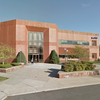New Military Board In Natick Eyes Small Biz
U.S. Army Soldier Systems Center works to streamline bidding processes
Small, high-tech businesses and emerging technology innovators, be on the lookout: Uncle Sam wants you.
A new military/civilian scientific and technology advisory board created by the U.S. Army Soldier Systems Center in Natick hopes to streamline the military contract bidding process and serve as a two-way street between the military and the small, Central Massachusetts companies that supply it with equipment, ideas and innovations.
While it seems obvious that the Soldier Systems Center (SSC), developers of technologies to clothe, feed, equip and shelter soldiers, would be aware of the major players in the market, such as Raytheon, the goal of the new advisory board is to help the smaller companies get noticed, said Jack Obusek, a retired Army colonel who now serves as interim director of the SSC and co-chair of the new board.
"What we're looking for is to facilitate communication with innovators in high tech that maybe have not done business with the military before," Obusek said.
Clusterbomb
The current Department of Defense process for soliciting bids from the private sector can be confusing and intimidating to small businesses and innovators ill-prepared to deal with strict military regulatory and overhead requirements, Obusek explained.
"We want to bring small business folks in to facilitate dealing with the government so we can determine their challenges and help break them down," said Obusek.
Northborough-based Aspen Aerogels produces a variety of insulating blankets for the military. In 2004, the company - which has about 160 employees - bid on an open solicitation from the Army looking for a new tent design with improved thermal insulation.
The project was right in the company's wheelhouse, said Sara Rosenberg, director of military and strategic programs at Aspen, and it was awarded an initial feasibility study contract under the DOD's Small Business Investment Relations program. Aspen's initial success led to further development money.
She said working through the DOD small business development program, similar in design to the new scientific advisory board in Natick, was a lifesaver for the small company.
Tech Out, Tech In
The new board also hopes to enhance the two-way flow of information and technological requirements between the private sector and the military, something Rosenberg thinks would be particularly useful for small companies like hers.
"Any connection like that that can help you understand the needs of the military, that would definitely be useful," she said.
Obusek explained that many times, there is a specific technology problem the military is looking to solve, one that a small company may already be working on or have a solution to.
"We think of it as a 'tech-in' to those things we don't know about, and even a 'tech-out'," said Obusek. "We have some capabilities and intellectual property that might be commercialized."
For now, Obusek said, the board will focus primarily on Massachusetts companies, but it may expand to a regional authority in coming years.
The advisory board members include Jack Wilson, president of the University of Masachusetts; Daniel O'Connell, Massachusetts Secretary of Housing and Economic Development; Steve Jamison, chairman of the Massachusetts Defense Technology Initiative; Mitchell Adams, president of the Massachusetts Technology Collaborative; Jim Shields, president of The Charles Stark Draper Laboratory in Cambridge; and Robert Culver, president of the Massachusetts Development Finance Agency.
The board will be chaired by Obusek and Brig. Gen. Mark Brown, commander of the Natick Soldier Systems Center. The first meeting is scheduled for Oct. 31.









0 Comments